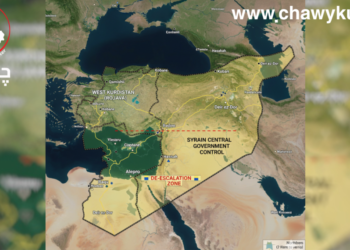“Mother tongue education prevents the dissolution of local culture”
Education in the mother tongue has importance to human beings because it defends the cultural identity of nations and enhances learning outcomes. When students are taught in their native language, they are better able to understand complex ideas and relate them to their own background of knowledge and experiences. This creates a sense of belonging, self-confidence and independence of thought and is very important for the development of perception and academic and scientific success. Research suggests that children who are raised in their mother tongue are more able to integrate into society, understand their surroundings better and do not appear strange.
“Pay more attention to English language has created class differences”
Unfortunately, foreign language schools in the Kurdistan Region have become the education of the high classes and Kurdish schools in compare is consider to those who are in weak economic capacity in Kurdish society. Here it is the class difference that appears, and society eventually appears as two different structures, the zone of opportunity and life on the one hand, and the zone of misery and life of misery, on the other. There are many consequences. Kurdish specialized departments in Kurdistan universities are on the verge of extinction. Not only are the private institutions negligent here, but the capitalists have a much worse role and continue to promote education in English and foreign languages for the sake of advertising and commercial gain, as if we do not live in a Kurdish society.
“Researches; Mother tongue education is preeminent”
Education in the mother tongue creates a strong sense of identity and cultural pride among students, allowing them to become deeply connected to their cultural and historical background and, most importantly, inseparable from their community.
Studies have shown that students educated in their mother tongue perform better academically than students studying in a foreign language, especially in primary school.
“Learning in the mother tongue improves language skills”
Let us not forget our language skills and linguistic abilities. Education in the mother tongue promotes language skills, linguistic competence and linguistic comparisons. In addition, students because of their mother tongue learn second and third language additionally.
“Mother tongue education provides equal opportunities”
A beneficial aspect of mother tongue education creates equal opportunities. That is, everyone benefits equally from the same educational system, which is the result of the same close social views and does not lead to differences and conflicts.





























































